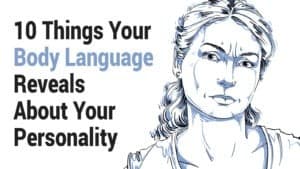History of Meyer’s Briggs Type Indicator (MBTI)
Isabel Myers and her mother, Katharine Cook Briggs, developed the Myers-Briggs Type Indicator. After studying personality differences in people around them, they became fascinated by personalities. Because they wanted a better method to differentiate between the personality types, Briggs started her research in 1917 to establish a better understanding.
Carl Jung had similar ideas about personalities, but his were much more developed. He came to the conclusion that people were either introverted or extroverted. Later on, he described human behavior as a combination of four psychic functions: feeling vs thinking and sensation vs intuition. Briggs found his work fascinating and wanted to bring it to a larger audience. Her main goal was to help people understand themselves better so they could live life to their full potential.
Around the time of WWII, Myers saw a great need for the personality test. Because many women were entering the workforce for the first time, she saw the necessity. Myers believed that perhaps if people understood themselves and each other better, there would be more unity and less conflict.
Plus, she wanted people to use their natural gifts. That’s because this clarity could ensure they enjoyed their work rather than despising it.
The MBTI instrument was first published in 1962 after years of painstaking research. While neither woman had training in psychology, the test was embraced by corporations to help understand and place their employees.
Cook-Briggs: A lifetime commitment to her research
Cook-Briggs spent her entire life “(enabling) individuals to grow through an understanding and appreciation of individual differences in healthy personalities and enhance harmony and productivity in diverse groups.”
When her mother passed away in 1968, Isabel Myers continued her legacy by further advancing their work. Myers’ efforts certainly paid off. In fact, millions of people around the world have taken the MBTI test. It’s been officially translated into over 30 languages.
The MBTI “describes differences in how people approach the world, take in information, and make decisions.”
The MBTI instrument is currently implemented in businesses, government, and school settings. Most importantly, it shows people invaluable information about themselves and others.
Factors in Determining Personality Types
There are 16 possible personality types, which are scored based upon preferences in four areas:
- Where you get your energy from: Do you gain energy from being around others or from being alone? On the other hand, do you construct your world based on outer or inner information? This is labeled Extroversion (‘E’) or Introversion (‘I’).
- How you perceive information: Do you collect information based on your five senses. Conversely, do you observe patterns and trust your gut? This is labeled Sensing (‘S’) or Intuition (‘N’).
- How you make decisions: When making decisions, do you look at logic and human values? Or, do you go by your own emotions about things? Scientists label this as Thinking (‘T’) or Feeling (‘F’).
- How you view the world: In daily life, do you enjoy a more structured existence. On the other hand, are you more of a “go with the flow” type? Researchers label this as Judging (‘J’) or Perceiving (‘P’).
So, which of the 16 types are you?
First, remember that there are no right or wrong personality types. Also, there are no best answers on the tests. The personality indicator is simply a way for you to understand yourself and your preferences.
Secondly, everyone exists on a spectrum when it comes to personality, meaning it’s quite fluid and not absolute. However, your personality will lean toward one function over another.
Third, keep in mind that your personality type will be represented by four letters, such as ESFP, INFP, ISTJ, etc.
So, with that said, let’s get to it! Below, we’ve listed all 16 personality types, along with descriptions of each and possibly occupations.
EXTROVERTS
1 – ESFJ
Otherwise known as the Consul, this type is popular, making up around 12% of the population. In high school, they might’ve been the cheerleader or quarterback, enjoying the spotlight and leadership required for their role. In fact, they are outgoing and enjoy helping people.
Happy, conscientious, loyal, harmonizing, “people-person,” sociable, tactful, warm.
Jobs: Elementary teacher, Childcare provider, School Administrator, Health Care Administrator, Special Needs Teacher/Assistant.
2 – ESTJ
Known as Executives, these people enjoy order and tradition. Thus, they excel at bringing people together and make wonderful community organizers.
Logical, organized, assertive, practical, results-oriented, analytical, systematic, responsible.
Jobs: Military/Police Officer, Stockbroker, Sales Manager, Real Estate Agent, Chef, Office Manager.
3 – ESFP
The natural Entertainer, this type loves the spotlight and has plenty of friends. In addition, they enjoy the finer things in life and enjoy showing others a great time.
Accepting, cooperative, friendly, passionate, commonsensical, loving, realistic, fun.
Jobs: Social Worker, Psychologist, Counselor, Mental Health Professional, Teacher, Scientist, Journalist, Physical Trainer, Nutritionist/Dietitian, Artist.
4 – ESTP
Known as the Entrepreneur, this type is naturally curious about the world around them and thrives on coming up with solutions to problems. They are natural risk-takers as well.
Energetic, flexible, spontaneous, “hands-on,” pragmatic, tolerant, hardworking, skillful.
Jobs: Carpenter, Mechanic, Building Inspector, Landscape Architect, Surveyor, Forester, Teacher (especially shop or home economics).
5 – ENTJ
Called the Commander, this type only makes up 3% of the population. This type is made up of natural-born leaders.
Assertive, critical, logical, strategic, visionary, initiating, planner, organized.
Jobs: Accountant, Community Organizer, Loan Officer, Marketing Manager, IT Professional, Executive.
6 – ENTP
Called the Debater, these people have a quick wit and need to have a thorough understanding of a topic before forming an opinion.
Practical, straightforward, decisive, quick-witted, outspoken, resourceful, analytical.
Jobs: Entrepreneur, HR Recruiter, Architect, Engineer, Geologist, Detective, Public Administrator, Director, Social Scientist.
7 – ENFJ
The Protagonist, this type loves to inspire and encourage others. Indeed, they do not feel satisfied unless they are actively helping people in some way.
Sociable, expressive, enthusiastic, idealistic, imaginative, conscientious, warm, and tactful.
Jobs: Teacher, Counselor, Therapist, Administrator, Sales Representative, Politician.
8 – ENFP
The Campaigner, this type is a free spirit and loves making deep, meaningful connections with the people around them.
Warm, enthusiastic, imaginative, appreciative, supportive, spontaneous, flexible, wordsmith.
Jobs: Counselor, Non-profit executive, Trainer, Human Rights Lawyer, Community Organizer, HR Director.
INTROVERTS
9 – ISTJ
Known as the Logistician, this type is very logical and analytical. They make sound decisions based on their observations of the world around them. Furthermore, they are steady and reliable people.
Dependable, serious, quiet, realistic, thorough, logical, focused, orderly, traditional.
Jobs: Military/Police, Attorney, Accountant, Manager, Economist, Farmer/Rancher, Librarian, Mortician
10 – ISTP
The Virtuoso, this type greatly enjoys creating and building things. They have a knack for bringing something to life based on their understanding of how moving parts work together for a greater purpose.
Flexible, tolerant, quiet, analyzing, practical, fact-oriented, efficient.
Jobs: Carpenter, Mechanic, Surveyor, Landscape Architect, Forester, Rancher/Farmer, Quality Assurance.
11 – ISFJ
Known as the Defender, this type has great people skills and will protect family and friends with their life.
Conscientious, friendly, responsible, loyal, committed, stead, precise, sensitive.
Jobs: Dentist, Family Physician, Nurse, Speech Pathologist, Therapist, Veterinarian, Health Care Aid.
12 – ISFP
The Adventurer, this type is spontaneous, unpredictable, and creative. They don’t like following social norms. Instead, they choose to make up the rules as they go.
Kind, friendly, creative sensitive, loyal, idealistic, conflict-averse, quiet, respectful.
Jobs: Artist, Chef, Cosmetologist, Interior Designer, Jeweler, Fashion Designer/Executive, Writer/Poet.
13 – INFJ
Let’s start by noting that INFJ is the rarest personality type, making up only 1% of the population. Known as the Advocate, this type is idealistic. However, they do not go to the extent that it takes them away from reality. Thus, they can easily take their ideas and bring about a great change in the world.
Decisive, insightful, committed, clarity of mind, humanitarian, organized.
Jobs: Clinical Psychologist, Counselor, Speech Pathologist, Clergyman/Clergywoman, Social Worker, Poet/Writer.
 14 – INFP
14 – INFP
Known as the Mediator, this is also a rare personality type, making up around 3-4% of the population. In fact, they are true idealists. Moreover, they have a passion for helping others and bringing their inner world to life.
Idealistic, curious, loyal, adaptable, flexible, accepting, understanding, promoting.
Jobs: Author, English Teacher, Counselor, Non-profit executive, Physical Therapist, Psychologist, Massage Therapist.
15 – INTP
The Logician, this type perfectly combines creativity with logic. Because of that trait, they love to examine patterns and spot discrepancies between statements.
Abstract, logical, theoretical, adaptable, contained, quiet, skeptical, analytical.
Jobs: Computer Scientist, Graphic Designer, Musician, Editor, Photographer, Lawyer, Physician.
16 – INTJ
Known as the Architect, this type is very analytical yet imaginative. In fact, they are usually called bookworms in school because of their insatiable appetite for knowledge.
Original, innovative, independent, skeptical, competent, driven.
Jobs: Accountant, Analyst, Statistician/Mathematician, Editor, Photographer, Technical Writer, Professor, Construction Manager.
Final thoughts about the 16 Personality Types
In conclusion, the personality types were created as a way for women to understand the type of work they were best suited for when they entered the workforce after WWII. However, the test has various applications in today’s world. Businesses, governments, and schools use it today. That’s because this measure helps them understand people better and help their employees or students perform to the best of their ability.
Finally, we hope you learned something useful about your personality type. If you’d like to take the test, you can do so here.


















